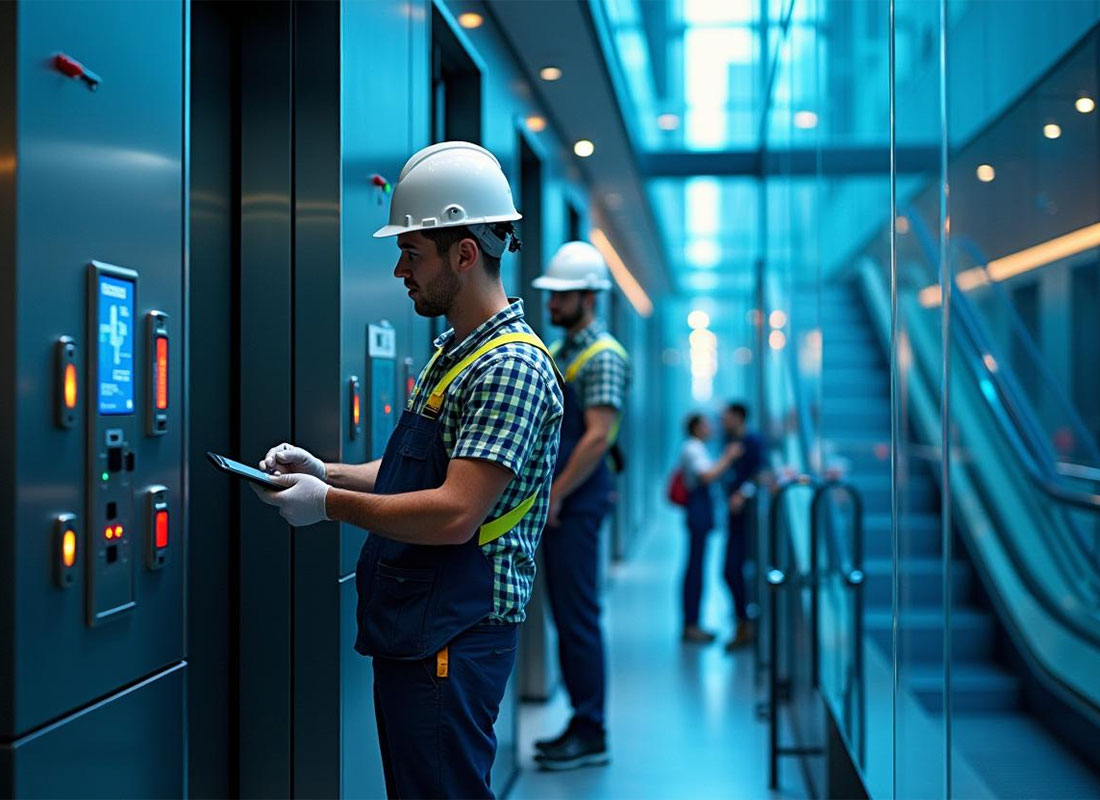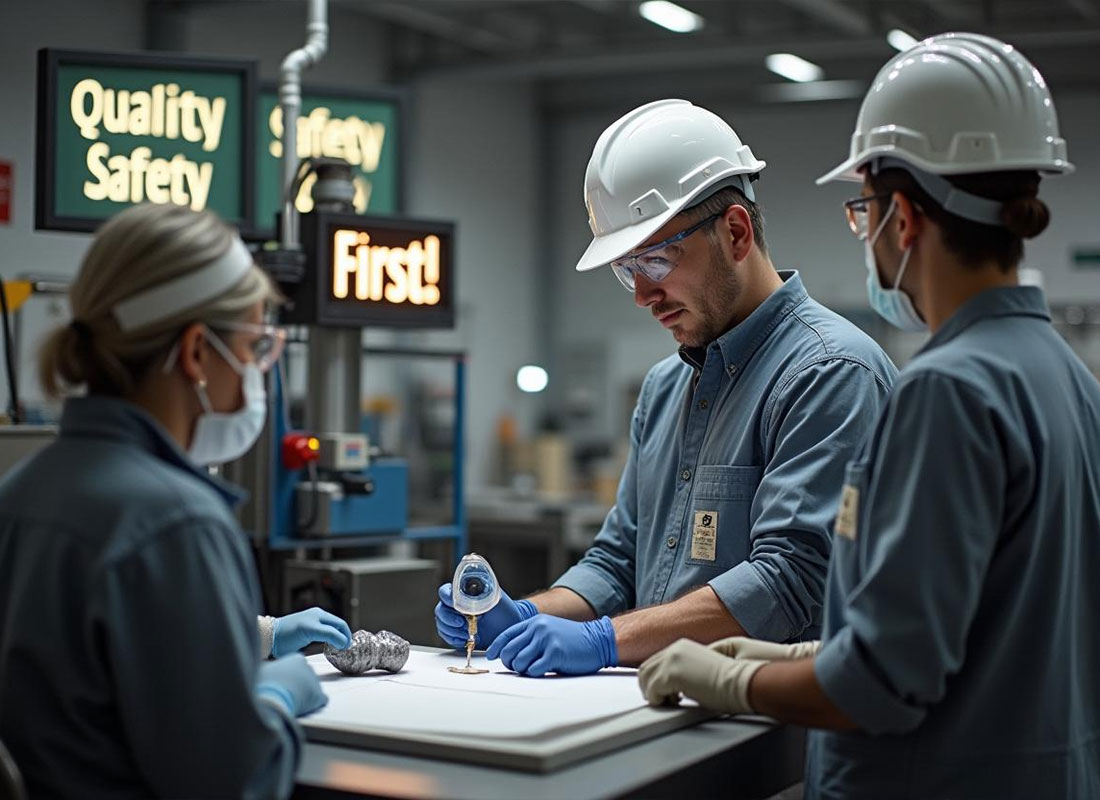Lily Pond Center, 3 R.K. Mission Road, Suit: D-21,Motijheel C/A, Dhaka-1000

Latest News

The Role of After-Sales Service in Ensuring Long-Term Elevator and Escalator Performance
Elevators and escalators are integral components of modern infrastructure, facilitating vertical transportation in residential, commercial, and industrial buildings. Their seamless operation is crucial for the convenience, safety, and efficiency of building occupants. However, the performance of these systems is not solely dependent on their initial installation and quality; it is equally influenced by the after-sales service they receive. This blog delves into the critical role of after-sales service in ensuring the long-term performance of elevators and escalators, highlighting its impact on safety, reliability, and cost-effectiveness.
Understanding After-Sales Service
Key Components of After-Sales Service
1. Regular Maintenance: Scheduled inspections and
servicing to identify and address potential issues before they escalate.
2. Emergency Repairs: Prompt response to unexpected
breakdowns or malfunctions to minimize downtime and ensure user safety.
3. Technical Support: Expert assistance for
troubleshooting, system upgrades, and addressing technical queries.
4. Spare Parts Supply: Availability of genuine spare
parts to facilitate timely repairs and replacements.
5. Training and Documentation: Providing user manuals, training sessions, and documentation to help building managers and maintenance staff operate and maintain the equipment effectively.
The Importance of
After-Sales Service in Elevator and Escalator Performance
1. Ensuring Safety
Safety is paramount when it comes
to elevators and escalators. These systems are subject to rigorous safety
standards and regulations to protect users from accidents and injuries.
After-sales service plays a crucial role in maintaining these safety standards
by:
·
Conducting Regular Inspections: Routine checks
help identify wear and tear, loose components, and other potential hazards that
could compromise safety.
·
Performing Preventive Maintenance: Proactive
maintenance reduces the risk of sudden breakdowns and ensures that safety
mechanisms, such as brakes and sensors, are functioning correctly.
·
Addressing Emergency Repairs: Quick response to
emergencies prevents accidents and ensures that the equipment is safe to use.
2. Enhancing
Reliability
Reliability is a key factor in
the performance of elevators and escalators. Users expect these systems to
operate smoothly and consistently without frequent breakdowns. After-sales
service contributes to reliability by:
·
Minimizing Downtime: Regular maintenance and
timely repairs reduce the likelihood of unexpected failures, ensuring
continuous operation.
·
Optimizing Performance: Fine-tuning and
adjustments during servicing help maintain the equipment's efficiency and
performance over time.
·
Extending Lifespan: Proper care and maintenance
extend the operational life of elevators and escalators, delaying the need for
costly replacements.
3. Reducing
Operational Costs
While after-sales service involves ongoing expenses, it
ultimately leads to cost savings by:
·
Preventing Major Repairs: Identifying and
addressing minor issues during routine maintenance prevents them from
escalating into major problems that require expensive repairs.
·
Avoiding Downtime Costs: Minimizing downtime
reduces the financial impact of disrupted operations, especially in commercial buildings
where elevators and escalators are critical to business activities.
·
Optimizing Energy Efficiency: Regular servicing
ensures that the equipment operates at peak efficiency, reducing energy
consumption and lowering utility bills.
4. Ensuring
Compliance with Regulations
Elevators and escalators are subject to stringent
regulations and standards to ensure their safe and efficient operation.
After-sales service helps building owners and managers comply with these
regulations by:
·
Conducting Compliance Inspections: Regular
inspections ensure that the equipment meets all relevant safety and performance
standards.
·
Updating Systems: Service providers can
recommend and implement upgrades to bring older systems in line with current
regulations.
·
Maintaining Documentation: Keeping detailed
records of maintenance and repairs helps demonstrate compliance during audits
and inspections.
5. Improving User
Satisfaction
User satisfaction is a critical aspect of elevator and
escalator performance. After-sales service contributes to a positive user
experience by:
·
Ensuring Smooth Operation: Well-maintained
elevators and escalators operate quietly and smoothly, enhancing user comfort.
·
Providing Reliable Service: Consistent
performance and minimal downtime build trust and confidence among users.
·
Offering Responsive Support: Quick and effective
resolution of issues demonstrates a commitment to user satisfaction.
Best Practices for
Effective After-Sales Service
To maximize the benefits of after-sales service, it is
essential to adopt best practices that ensure the highest level of care and
attention for elevators and escalators. These practices include:
1. Developing a
Comprehensive Maintenance Plan
A well-structured maintenance plan is the foundation of
effective after-sales service. This plan should outline the frequency and scope
of inspections, servicing, and repairs, taking into account the specific
requirements of the equipment and the building's usage patterns.
2. Utilizing
Advanced Monitoring Technologies
Modern elevators and escalators are equipped with advanced
monitoring systems that provide real-time data on their performance. Leveraging
these technologies allows service providers to detect potential issues early
and address them proactively.
3. Training and
Empowering Maintenance Staff
Well-trained maintenance staff are essential for delivering
high-quality after-sales service. Providing ongoing training and access to the
latest tools and techniques ensures that they are equipped to handle the
complexities of modern elevator and escalator systems.
4. Establishing
Clear Communication Channels
Effective communication between building managers,
maintenance staff, and service providers is crucial for coordinating
after-sales activities. Clear communication channels facilitate the timely
reporting of issues, scheduling of maintenance, and sharing of updates.
5. Prioritizing
Genuine Spare Parts
Using genuine spare parts is essential for maintaining the
performance and safety of elevators and escalators. Genuine parts are designed
to meet the manufacturer's specifications and ensure compatibility with the
equipment.
6. Conducting
Regular Performance Reviews
Periodic reviews of the
equipment's performance and the effectiveness of the after-sales service help
identify areas for improvement. These reviews should involve feedback from
building managers, maintenance staff, and users to ensure a comprehensive assessment.
Case Studies: The Impact of After-Sales
Service on Elevator and Escalator Performance
Case Study 1:
High-Rise Residential Building
A high-rise residential building
in a metropolitan area experienced frequent elevator breakdown, leading to
resident complaints and increased maintenance costs. The building management
decided to partner with a reputable after-sales service provider that
implemented a comprehensive maintenance plan, including regular inspections,
preventive maintenance, and the use of genuine spare parts. Within six months,
the frequency of breakdowns decreased by 70%, and resident satisfaction
improved significantly.
Case Study 2:
Shopping Mall
A large shopping mall with
multiple escalators faced challenges related to energy consumption and frequent
malfunctions. The after-sales service provider conducted an energy audit and
recommended upgrades to the escalator motors and control systems. Additionally,
a proactive maintenance schedule was established to address wear and tear. As a
result, the mall achieved a 20% reduction in energy costs and a 50% decrease in
escalator downtime.
Case Study 3: Office
Complex
An office complex with a high
volume of elevator usage implemented an advanced monitoring system as part of
its after-sales service strategy. The system provided real-time data on
elevator performance, enabling the service provider to identify and address
potential issues before they caused disruptions. The office complex reported a
90% reduction in unexpected breakdowns and a significant improvement in tenant
satisfaction.
Conclusion
The role of after-sales service
in ensuring the long-term performance of elevators and escalators cannot be
overstated. From enhancing safety and reliability to reducing operational costs
and improving user satisfaction, after-sales service is a critical investment
for building owners and managers. By adopting best practices and partnering
with reputable service providers, it is possible to maximize the benefits of
after-sales service and ensure the seamless operation of these essential
vertical transportation systems.
In a world where elevators and
escalators are indispensable to modern living, prioritizing after-sales service
is not just a matter of convenience—it is a commitment to safety, efficiency,
and sustainability. As technology continues to advance, the importance of
after-sales service will only grow, making it an essential component of any
strategy aimed at achieving long-term elevator and escalator performance.


